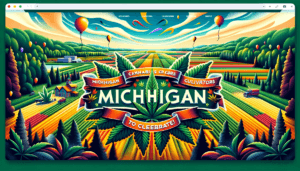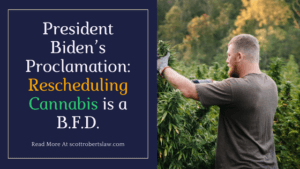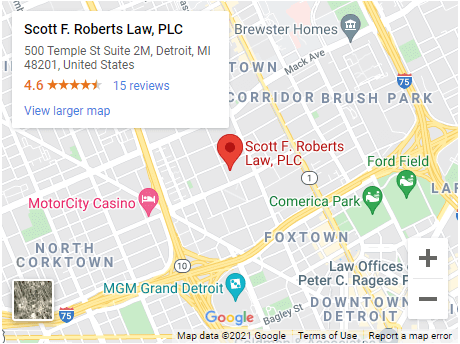On April 18, 2019, Governor Gretchen Whitmer and the Michigan Department of Agriculture and Rural Development (MDARD) announced the launch of the state’s Industrial Hemp Ag Pilot Program for the 2019 planting season. Although the U.S. government is implementing a national hemp program under the 2018 Farm Bill, which authorized the commercial production and processing of industrial hemp in the United States, the State of Michigan has the authority to authorize the growing of industrial hemp for research purposes. The federal government’s program under the 2018 Farm Bill may not be ready until 2020. This program is an interim step conducted under the 2014 Farm Bill designed to allow the state’s hemp farmers and processors to prepare for the upcoming implementation of the state’s hemp program under the 2018 Farm Bill.
The program will immediately begin accepting applications from industrial hemp growers and processors / handlers. The program requires farmers and processors / handlers to enter into a research agreement with MDARD, which expires on November 30th, 2019, at which time licensees will need to reapply with MDARD.
Michigan’s Industrial Hemp Ag Pilot Program allows farmers to test out whether growing and processing hemp could be a financially viable crop for them, as well as pave the way for Michigan growers to enter a permanent licensing program. Now that hemp is treated like other agricultural commodities, hemp producers may be eligible for federal crop insurance as well as U.S. Department of Agriculture research grants.
Farmers looking to grow hemp will be entering a booming market. Industrial hemp has countless uses, including paper, clothing, textiles, biodegradable plastics, building materials, health food, automobile parts, and fuel, just to name a few. In addition, farming industrial hemp is ideal for Michigan farmer’s looking for another crop for rotation, especially since hemp cultivation actually improves soil quality.
The hemp cultivation program is open to anyone who has not been convicted of a felony relating to a controlled substances in the last ten years. The program also restricts persons from leasing land from persons convicted of a controlled substance felony in the last ten years. In addition, as part of the program, you will need to submit to any and all inspections of the property, regardless of whether you are given advanced notice of the inspection. You will also need to submit an end of the year research report summarizing the “research” you conducted. You do not need to limit your research to medical purposes—you should be able to “research” cultivation methods involved in growing hemp, as well as “research” the market for hemp products here in Michigan.
It should be noted that not all hemp is the same and the end use can determine the type of hemp grown and the cultivation methods utilized in growing hemp. High CBD hemp is labor intensive and most similar to growing Cannabis or tobacco, whereas hemp grown for industrial purposes is much more similar to traditional row cropping methods utilized by Midwestern farmers. Our firm is currently working with an individual who has substantial experience growing hemp for industrial uses in Windsor. He may be available as a resource for those interested in industrial hemp (but not CBD hemp) cultivation.
It should also be noted that there are some risks to growing industrial hemp. Although similar to cannabis, industrial hemp means a plant containing a THC concentration of no more than 0.3% on a dry weight basis. Growing hemp with THC levels above 0.3%, even slightly, will be considered marijuana, subject to much stricter state and federal laws. An accidental spike in THC levels of a crop will be considered illegal without the licenses required to grow medical or recreational marijuana, and this accident may lead to legal consequences, including destruction of your entire hemp crop.
If one is interested in growing industrial hemp or processing hemp in Michigan, farmers aged 18 years or older must first obtain a license and enter into a research agreement with MDARD. Forms for a grower registration, a processor-handler license, and participation in MDARD’s 2019 Hemp Ag Pilot Program are available now, and the department will begin accepting applications on Tuesday, April 23, 2019. The grower registration fee is $100, and a license to process and handle hemp costs $1,350. Payments must be made by certified check or money order payable to the State of Michigan.
Processor and Handler applications are available here: https://www.michigan.gov/documents/mdard/Processor-Handler-Application_652870_7.pdf
Grower applications are available here: https://www.michigan.gov/documents/mdard/Grower-Application_652868_7.pdf
As part of the application process, applicants will need to enter into a form research agreement with MDARD as well as fill out the relevant paperwork above and provide maps on 8.5” x 11” paper of all locations where you will grow, handle, store, process, broker or market industrial hemp. You will also need to provide an iChat background check. You can run an iChat background check here: Michigan State Police, Internet Criminal history access tool (ICHAT). If you are applying as an entity, you will need to provide the full name of each officer and director, and partner, member or owner owning in excess of 10% of equity or stock, including his or her birthdate, title and valid/monitored electronic mail address shall be included on the application. In addition, a notarized attestation that these individuals are free from felony drug convictions must be submitted.
The State of Michigan is encouraging applicants to apply on-site at licensing events at the MSU Pavilion for Agriculture and Livestock Education in Lansing. Dates and times are as follows:
Tuesday, April 23rd 8:30 am –11:45 am, 1:00 pm-**4:00 pm
Wednesday, April 24th 8:30 am –11:45 am, 1:00 pm-**4:00 pm
Monday, April 29th 8:30 am –11:45 am, 1:00 pm-**4:00 pm
Tuesday, April 30th 8:30 am –11:45 am, 1:00 pm-**4:00 pm
You can call the MDARD Customer Service Center at 1-800-292-3939 (M – F, 8 am – 5 pm) to reserve a spot.
Scott F. Roberts is a Michigan Cannabis and Hemp Attorney and the managing partner of Scott F. Roberts Law, a boutique Cannabis and Hemp law firm in Detroit. Mr. Roberts is also an attorney with McAllister Garfield, a national marijuana and hemp law firm with its own devoted Hemp and CBD practice group.




